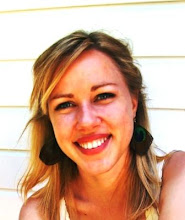In honor of class starting this week, here is the essay I submitted with my grad school application. No subject seems to be as inexhaustible as writing about writing, like the vanishing horizons in a pair of mirrors staring at each other . . .
What I read these days seems to matter less than where I read it. I have felt aware that my context, from my physical location to my mental state to that day’s headline in the Washington Post, lays half the foundation for meaning. If I read God on the Dock, collected essays by C.S. Lewis, in the aisle of Borders, it rings with Lewis’s wit and integrity of thought. If I read it in the middle of the Shenandoah Wilderness, ten miles from anything else that goes on two legs, in a tent by a river on a night of bitter Feburary cold, and the tent has sepulchral dimensions as I lie in the embalming warmth that my body radiates, and if I read by the light of a lamp that I wear on my head like a coal miner, than I clutch at the words in the pale blue orb of my headlamp. They become a cup of reason and thick-blooded humanness against the freezing dark.
And if I read Orwell’s “The Politics of the English Language” in my bedroom, still lodged in the agony of pantyhose but too weary to extricate myself, if I have spent all day reading memorandums in the garbled, bloodless English of business, then I soak in the words as in a steaming bath, and rejoice to find someone defending the English language. Someone needs to speak for the lovely and subtle words that are every day badgered and molested, kidnapped, assassinated and forced to misrepresent themselves. I say the following not to demean faith, but in acknowledgment of the power of language: Orwell is to the English language as Moses was to the Hebrew religion. His five pragmatic rules about language, our medium of meaning, guard it from the sacrileges that the novice writer itches to inflict, as surely as the Ten Commandments sought to hedge the Hebrew faith, the repository of Judaic meaning, from Canaan’s diluting influence.
I have often transgressed Orwell’s code. “Pretentious diction.” “Dying metaphors.” “Verbal false limbs.” “Staleness of imagery.” “Lack of precision.” I fell back on these sloppy faults many times in high school and college to camouflage any lack of understanding. To be frank, I was taught to do so. What you lack in original thought, make up in complex sentence structure. If the College Board readers are in a hurry, and we all knew that they were, they might mistake our inflated vocabulary and token classical references for actual insight. They did. But some writing was always about more that academic survival. It was about the man on the beach who, after an epileptic fit, drowned in two inches of water while we watched the lifeguards fail to revive him. It was about the vine-choked mountain behind my house where I contracted poison ivy – three times – and could not stop climbing it. It was, for a hormone-saturated interval, about my selfish and torrid fits of despair. Mostly, It was about was the parable that seemed to underlie everything I saw and to glue together its disparate shards. The literary chicaneries I had acquired only muddied such thoughts.
Some things we do out of love. Some things we do because we are forced to do them. Others, we do out of mindless ease from birth, and whether they become a joy or a drudgery depends on whether we tune the skill. We all breathe, but most of us draw quick, shallow, oxygen-poor sips of air. Only a few widen their lungs like inflating balloons to take sensuous gulps of atmosphere.
By the time I was eight, in an act that sealed my fate, I had begun reading books without pictures. In the summer after fourth grade, I swallowed volumes of Dickens (It gave me marvelous hangovers) and L.M. Montgomery. I stole my older sister’s assigned school readings and secreted them to my bedroom. I read the encyclopedia, starting with aardvarks. The contours of fiction blurred so that sometimes, the character in a book slipped into my bedtime prayers. Good reading has been my most intensive, useful, and unrelenting instruction in good writing. Writing at home was its own experimental education. I wrote gushy poems about kittens and morbid short stories about car accidents and comas. I recreated the styles and plots of my favorite authors (some uncharitable playmates put me on trial for “plaigarism” during recess.) I wrote stories and poems as birthday presents. This worked out well, since I had no income and my mother seemed to think it was charming. I wrote plenty of sentimental excrement that ought to made into a towering bonfire, but some things turned out well. When I entered eighth grade, my English teacher presented me with an ultimatum – either I would write the school play for that year, or we would put on a production of Pinocchio. I hate Pinocchio, and that was that.
As my education became more formal, I picked up the bad habits I still have to think about avoiding. But I kept pursuing writing, and I kept knowing that I would, someday, somehow, be a writer, however foggily I understood what it meant. Sometimes, I felt more as though writing pursued me. I took an internship at a bank in San Francisco that hired me to do 5,000 lines of data entry into an Excel spreadsheet. By the end of the summer, I was writing articles about commercial real estate banking for the company website.
I majored in English at Georgetown university. I took courses like Non-fiction as a Literary Form, Scriptwriting, Screenwriting, Advanced Non-fiction Writing Seminar. I also took a writing course in Italy called “Writing Italy” through Georgetown’s study abroad program at Villa Le Balze in Florence, Italy. I had a professor who made me rewrite the lyrics to Cole Porter songs, just to teach me about the importance of rhythm, and another who played recordings of Dadaist poetry just to convey the emotional punch of pure sound.
All the electrical wiring and light bulbs in the world are useless, unless someone flips the switch. In acquiring the machinery of a writer’s craft, the arsenal of rhetorical devices, I had wandered from that underlying parable, those beguiling disparate shards glued together. Degree in hand, I needed something to write about. I needed something to flip the switch.
When my father told me that he had Lou Gherig’s disease, I started a blog to keep from the jagged edge of insanity. All death is hard, but Lou Gherig’s is a master at inflicting human suffering, a virtuoso disease. His flesh seemed to melt into the ether as if an invisible spider feasted on his limbs. I wrote him “The Moon Song” to say good-bye him, but also to transfuse my blood into his veins.
When I traveled to Greece, Albania, and Macedonia with an NGO, the Greek director told me about the need for doctors, teachers, engineers, and human rights activtists, I paused. I cannot set a bone. I cannot teach a class, build road, or lobby the United Nations. My sparkly liberal arts education looked all at once dull and unwieldly. In the van between border checks, the director told her stories, stories that died maddeningly into the air as I listened, stories that mattered – cynicism be damned. Here was a problem I could do something about. We decided to write a book together. On the side, I am writing that book, writing articles for a start-up magazine, and still blogging, though I spend my professional life trying to pump an aesthetic soul into e-mails and survey reports.
I have written a little bit of everything, from Dadaist imitations to those commercial real estate articles, but the longer I go, the more creative or literary nonfiction draws me like a paper clip to a magnet. I love this genre because it is about the intersection of fact and soul, that parable written into and with and through the slipshod world. To discover it is like hearing the secret message when you play an album backwards. Creative nonfiction, done well, straddles the abstract and the earth, telling us the profound things with tangible elements. Human beings, clothed in flesh, compound sight and belief. If you tell a man about existential loneliness, he will nod politely; if you tell him something he can feel in his bones, like staring at the stars winking in the infinite cold, and feeling the indifference of the universe to his termite life, then he may understand what you mean.
That difference is vital. So many people grind out numb lives. A grand story is washing over us and we are missing it, daily and tragically. It is the stories we miss that transfix me. It must have started with my great-grandmother locked away in a nursing home. She was little more than bones with the flesh shrunken greedily back into her core, but she had so many stories. Unbelievable stories. It was like picking blackberries from a vine in July. They fell off. If we knew those stories, knew how to tell them and listen to them, we might be a little more awake, a little more clear, a little more human. And because they are true, they compel us.
My aspirations as a grad student are: 1) to have the opportunity to grow as a writer by being intelligently criticized (My support base has always been wildly enthusiastic, but irreparably blinded by genetic affinity.) 2) to keep writing! I think about writing and I talk about writing, but sometimes, between a full-time job and cooking myself meals and vacuuming the cat hair off the furniture, it’s hard to sit down and do it. I am afraid that if I let the muscles sit idle for too long, writing will become the road that diverged in the yellow wood that I did not take. 3) to work on this whole thing of becoming a “writer” that is, being published (that intimidating “p” word) and having “clips” and a “portfolio,” working with pitches and deadlines and editors and innumerable drafts.
As a writer, I would like to do freelance work of all kinds of nonfiction, essays, memoir, biography, travel, literary journalism, and creative nonfiction. I love the research component that inherently goes into such pieces. But even if I am never published, that Shangri-La and Holy Grail wrapped into one for writers, there is, as Orwell impressed, an inherent gift for those who master the thoughtful use of language. To write clearly, to do without the “prefabricated henhouses” of first resort in the English language, is the first step towards thinking clearly, about myself and my world.





